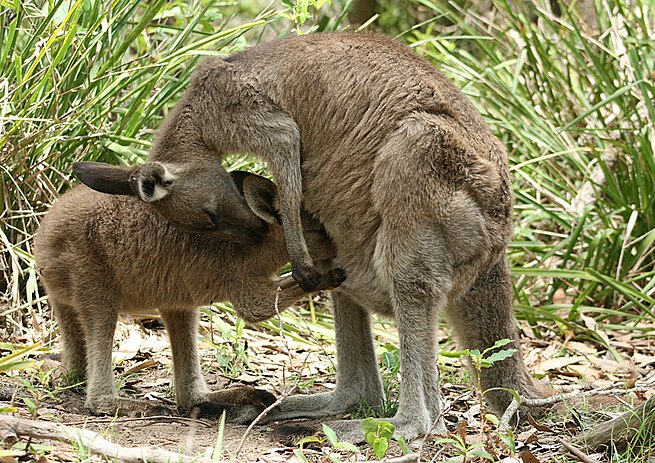
-
Nature
Nature, in the broadest sense, is the natural, physical, or material world or universe. “Nature” can refer to the phenomena of the physical world, and also to life in general. The study of nature is a large, if not the only, part of science. Although humans are part of nature, human activity is often understood as a separate category from other natural phenomena.
The word nature is derived from the Latin word natura, or “essential qualities, innate disposition”, and in ancient times, literally meant “birth”. Natura is a Latin translation of the Greek word physis (φύσις), which originally related to the intrinsic characteristics that plants, animals, and other features of the world develop of their own accord. The concept of nature as a whole, the physical universe, is one of several expansions of the original notion; it began with certain core applications of the word φύσις by pre-Socratic philosophers, and has steadily gained currency ever since. This usage continued during the advent of modern scientific method in the last several centuries.Within the various uses of the word today, “nature” often refers to geology and wildlife. Nature can refer to the general realm of living plants and animals, and in some cases to the processes associated with inanimate objects—the way that particular types of things exist and change of their own accord, such as the weather and geology of the Earth. It is often taken to mean the “natural environment” or wilderness—wild animals, rocks, forest, and in general those things that have not been substantially altered by human intervention, or which persist despite human intervention. For example, manufactured objects and human interaction generally are not considered part of nature, unless qualified as, for example, “human nature” or “the whole of nature”. This more traditional concept of natural things which can still be found today implies a distinction between the natural and the artificial, with the artificial being understood as that which has been brought into being by a human consciousness or a human mind. Depending on the particular context, the term “natural” might also be distinguished from the unnatural or the supernatural.
-
Nurture (noun)
The act of nursing; tender care
“upbringing|raising|education|training”
-
Nurture (noun)
That which nourishes; food; diet.
-
Nurture (noun)
The environmental influences that contribute to the development of an individual (as opposed to “nature”).
-
Nurture (verb)
To nourish or nurse.
-
Nurture (verb)
To encourage, especially the growth or development of something.
-
Nature (noun)
The natural world; that which consists of all things unaffected by or predating human technology, production, and design. E.G. the ecosystem, the natural environment, virgin ground, unmodified species, laws of nature.
“Nature never lies (i.e. tells untruths).”
-
Nature (noun)
The innate characteristics of a thing. What something will tend by its own constitution, to be or do. Distinct from what might be expected or intended.
-
Nature (noun)
The summary of everything that has to do with biological, chemical and physical states and events in the physical universe.
-
Nature (noun)
Conformity to that which is natural, as distinguished from that which is artificial, or forced, or remote from actual experience.
-
Nature (noun)
Kind, sort; character; quality.
-
Nature (noun)
Physical constitution or existence; the vital powers; the natural life.
-
Nature (noun)
Natural affection or reverence.
-
Nature (verb)
To endow with natural qualities.
-
Nature (noun)
the phenomena of the physical world collectively, including plants, animals, the landscape, and other features and products of the earth, as opposed to humans or human creations
“the breathtaking beauty of nature”
-
Nature (noun)
the physical force regarded as causing and regulating the phenomena of the world
“it is impossible to change the laws of nature”
-
Nature (noun)
the basic or inherent features, character, or qualities of something
“helping them to realize the nature of their problems”
“there are a lot of other documents of that nature”
-
Nature (noun)
the innate or essential qualities or character of a person or animal
“it’s not in her nature to listen to advice”
“I’m not violent by nature”
-
Nature (noun)
inborn or hereditary characteristics as an influence on or determinant of personality.
-
Nature (noun)
a person of a specified character
“Emerson was so much more luminous a nature”
